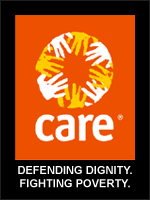 Call for papers
Call for papersLegal Consciousness and Access to Justice in SEA
Laurens Bakker, Radboud University Nijmegen
Adriaan Bedner, Leiden University
A.W.Bedner@law.leidenuniv.nl
During the past few years several countries in Southeast Asia have shifted their focus from building the Œrule of law¹ to promoting Œaccess to justice¹ as the main strategy to improve the functioning of their legal system. For example, Indonesia officially launched its National Access to Justice Strategy on 26 May 2009, which proposes a comprehensive programme of societal reforms under this banner. While both concepts have multiple meanings, it is clear that this entails a shift in focus from state to society or from Œsupply¹ to Œdemand¹, in line with the neo-liberal trend to reinforce the capacity of individuals to improve their lives by themselves.
Likewise, access to justice is not limited to accessing state institutions that dispense justice, but also includes a variety of potential non-state forums that may provide redress.
Remarkably, however, most access to justice models used for policymaking pay little attention to the central issue of Œlegal consciousness¹: how do people come to perceive the Œreal-life problems¹ they experience in terms of injustices. This is after all the first crucial step on the road that eventually should provide them with redress. The absence of this aspect is the more remarkable in the light of recent legal anthropological research
notably on Thailand which indicates that processes of social uprooting may lead to perceiving injustices in terms of religion rather than law and thus reduces the inclination of people to go down the Œ legal road¹ whether a state one or another. How do people attain redress of their grievances and what sort of redress is considered as sufficient? What authorities are mobilised, and who has the final say?
During the past few years several countries in Southeast Asia have shifted their focus from building the Œrule of law¹ to promoting Œaccess to justice¹ as the main strategy to improve the functioning of their legal system. For example, Indonesia officially launched its National Access to Justice Strategy on 26 May 2009, which proposes a comprehensive programme of societal reforms under this banner. While both concepts have multiple meanings, it is clear that this entails a shift in focus from state to society or from Œsupply¹ to Œdemand¹, in line with the neo-liberal trend to reinforce the capacity of individuals to improve their lives by themselves.
Likewise, access to justice is not limited to accessing state institutions that dispense justice, but also includes a variety of potential non-state forums that may provide redress.
Remarkably, however, most access to justice models used for policymaking pay little attention to the central issue of Œlegal consciousness¹: how do people come to perceive the Œreal-life problems¹ they experience in terms of injustices. This is after all the first crucial step on the road that eventually should provide them with redress. The absence of this aspect is the more remarkable in the light of recent legal anthropological research
notably on Thailand which indicates that processes of social uprooting may lead to perceiving injustices in terms of religion rather than law and thus reduces the inclination of people to go down the Œ legal road¹ whether a state one or another. How do people attain redress of their grievances and what sort of redress is considered as sufficient? What authorities are mobilised, and who has the final say?
The panel brings together researchers working on this issue of Œlegal consciousness¹ and related subjects in Southeast Asia. It addresses questions such as what normative standards people use to evaluate the problems they experience, how they categorise them, which factors influence their decision to embark on a certain course for obtaining redress, how state institutions and NGOs respond to this, etc. The panel thus hopes to gain new insights into a promising field that has not been systematically researched in the context of Southeast Asia.
Please submit abstracts to the organizers before 15 March.
--








Aucun commentaire:
Enregistrer un commentaire